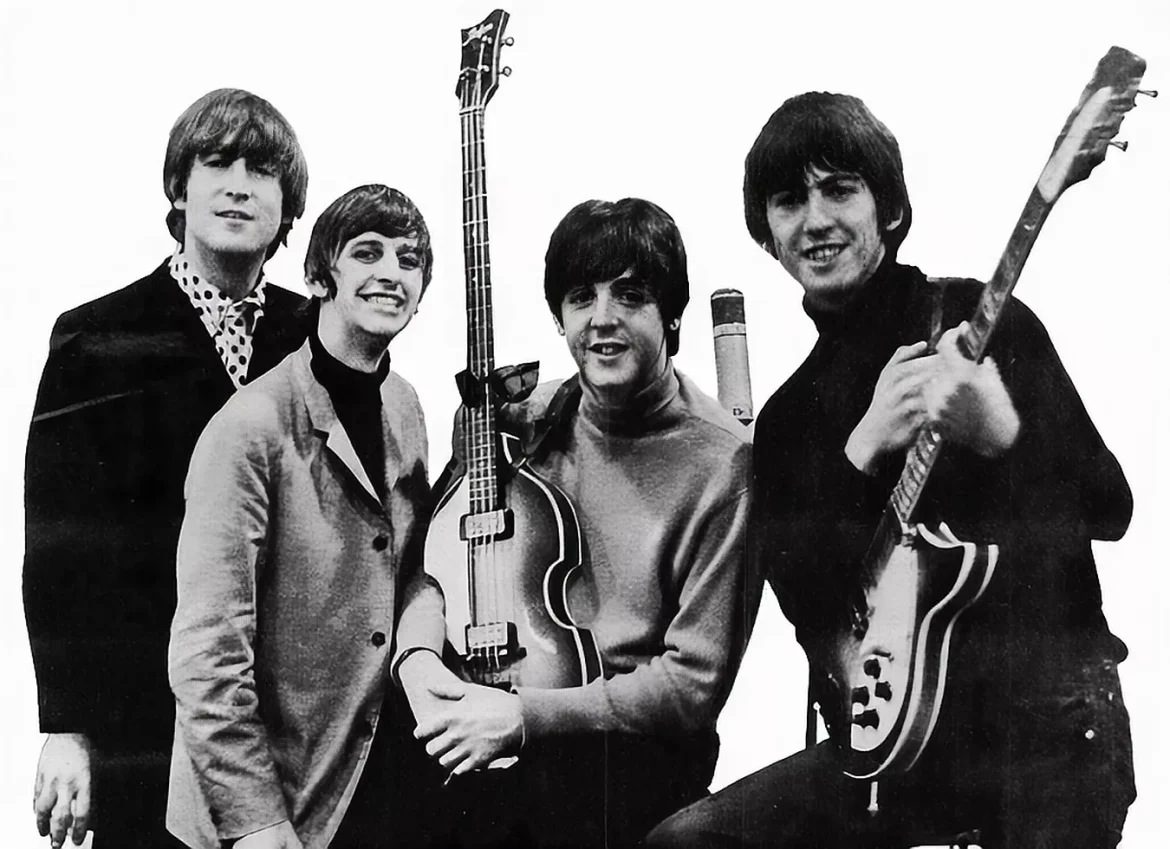The Beatles are one of the most influential bands in music history. Their impact goes beyond music, touching various aspects of culture and religion. This article explores how The Beatles influenced and were influenced by the cultural and religious landscape of their time.
I. Early Influences and the Birth of a Band
1. Liverpool: A Melting Pot of Cultures
The Beatles were formed in Liverpool, a city known for its rich cultural diversity. Liverpool was a major port city, attracting people from different parts of the world. This diversity exposed the young Beatles to a variety of musical styles, including American rock and roll, rhythm and blues, and traditional British music. This eclectic mix of influences helped shape their unique sound.
2. Skiffle and Rock and Roll
In the 1950s, skiffle music became popular in the UK. Skiffle is a genre that blends jazz, blues, and folk music. John Lennon, Paul McCartney, and George Harrison were initially part of skiffle bands before forming The Beatles. Skiffle introduced them to the idea of forming a band and performing music. American rock and roll, especially artists like Elvis Presley, Chuck Berry, and Little Richard, also played a crucial role in their musical development.
II. The Beatlemania Phenomenon
1. Cultural Impact of Beatlemania
In the early 1960s, The Beatles’ popularity exploded. Their appearance on “The Ed Sullivan Show” in 1964 marked the beginning of Beatlemania in the United States. This period was characterized by intense fan devotion and media frenzy. The Beatles’ image, music, and lifestyle influenced fashion, hairstyles, and youth culture.
2. Breaking Cultural Barriers
The Beatles helped break down cultural barriers. Their success in the United States opened doors for other British bands, leading to the British Invasion. They also challenged social norms with their behavior and public statements. For example, they spoke out against segregation during their American tours, refusing to perform in segregated venues.
III. Influence of Eastern Religions
1. Introduction to Eastern Philosophies
In the mid-1960s, The Beatles developed an interest in Eastern religions and philosophies. This interest was sparked by their dissatisfaction with Western materialism and a desire for spiritual fulfillment. Their exploration of Eastern thought had a profound impact on their music and personal lives.
2. Meeting Maharishi Mahesh Yogi
In 1967, The Beatles attended a lecture by Maharishi Mahesh Yogi, the founder of Transcendental Meditation (TM). They were intrigued by his teachings and traveled to India in 1968 to study TM under his guidance. This trip was a turning point in their spiritual journey. They spent time meditating, writing songs, and exploring Indian culture.
3. Impact on Music and Lyrics
The influence of Eastern religions is evident in The Beatles’ music from this period. Songs like “Norwegian Wood” and “Tomorrow Never Knows” feature Indian instruments like the sitar and tabla. The lyrics of these songs reflect themes of spiritual exploration and transcendence. The album “Sgt. Pepper’s Lonely Hearts Club Band” also includes references to Eastern philosophy and mysticism.
VI. Religious Controversies and Backlash
1. Lennon’s “More Popular than Jesus” Comment
In 1966, John Lennon made a controversial statement in an interview, saying that The Beatles were “more popular than Jesus.” This comment sparked outrage, particularly in the United States. Radio stations banned their music, and some fans burned their records. The incident highlighted the tension between popular culture and traditional religious values.
2. Response to the Backlash
The Beatles were taken aback by the backlash. Lennon clarified his remarks, explaining that he was commenting on the declining influence of Christianity among young people. Despite the controversy, The Beatles continued to explore spiritual themes in their music. They sought to promote messages of love, peace, and understanding.
V. The Beatles’ Solo Careers and Spiritual Pursuits
1. John Lennon’s Solo Work
After The Beatles disbanded in 1970, each member pursued solo careers. John Lennon’s solo work reflected his continued interest in spirituality and social issues. Songs like “Imagine” and “Give Peace a Chance” became anthems for peace and social change. Lennon also explored primal therapy and other forms of personal development.
2. George Harrison’s Devotion to Hinduism
George Harrison’s spiritual journey deepened after The Beatles. He became a devotee of Hinduism and formed a close relationship with the Indian musician Ravi Shankar. Harrison’s solo work, such as the album “All Things Must Pass,” features themes of spirituality and devotion. He organized the Concert for Bangladesh in 1971 to raise awareness and funds for refugees, reflecting his commitment to humanitarian causes.
3. Paul McCartney and Ringo Starr’s Contributions
Paul McCartney and Ringo Starr also explored spiritual themes in their solo work, although to a lesser extent than Lennon and Harrison. McCartney’s song “Let It Be” is inspired by a vision of his late mother, while Starr has been involved in various peace and love initiatives.
VI. The Beatles’ Legacy in Modern Culture
1. Continuing Influence on Music
The Beatles’ influence on music continues to be felt today. Their innovative use of studio techniques, diverse musical styles, and experimental approach to songwriting have inspired countless artists. Bands like Oasis, Radiohead, and Coldplay cite The Beatles as a major influence.
2. Impact on Spirituality and Popular Culture
The Beatles’ exploration of spirituality and their messages of love and peace resonate with modern audiences. Their music encourages listeners to seek inner peace and challenge societal norms. The Beatles’ legacy is celebrated through tribute bands, documentaries, and academic studies.
See Also: The Beatles: A Timeless Legacy of Rock Music
VII. Conclusion
The Beatles’ cultural and religious influence is profound and multifaceted. They broke down cultural barriers, challenged social norms, and explored new spiritual horizons. Their music continues to inspire and uplift people around the world. The Beatles’ journey from Liverpool to global superstardom is a testament to the power of music to transcend boundaries and touch the human soul.

